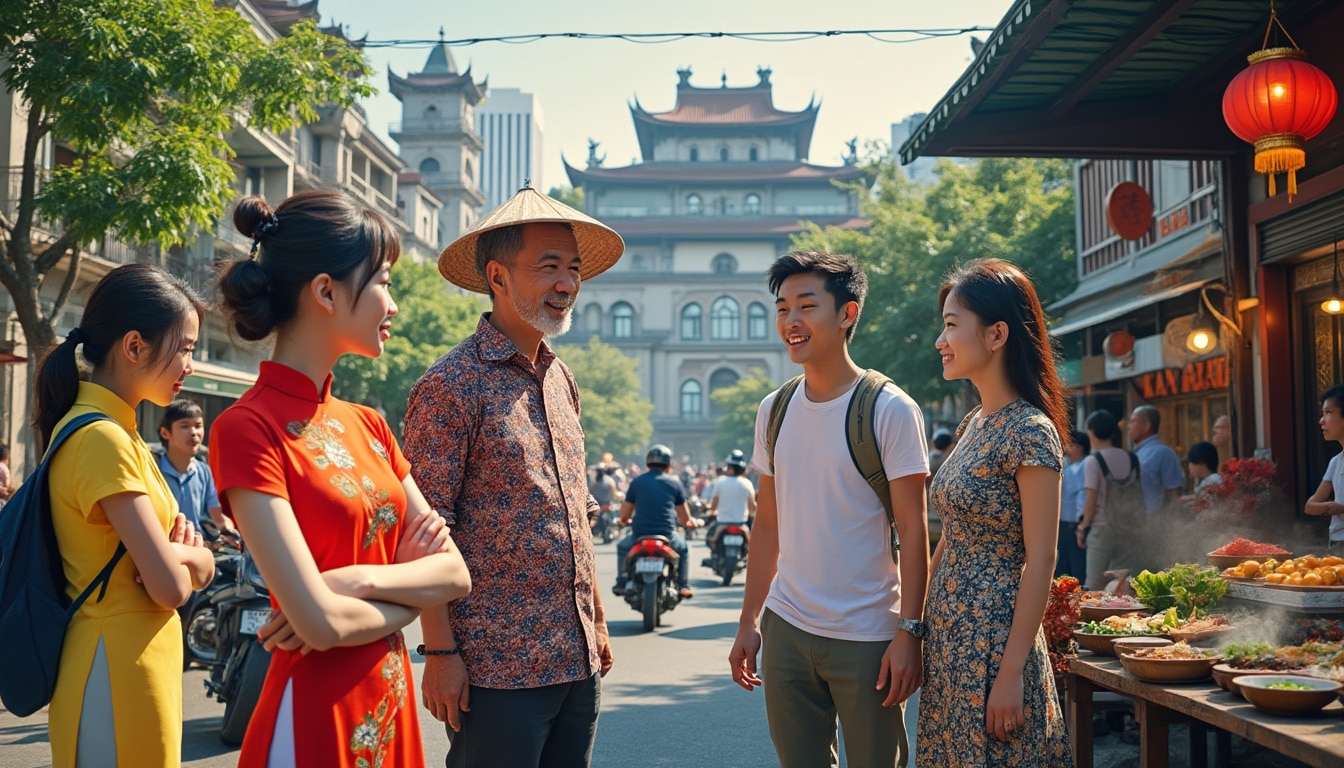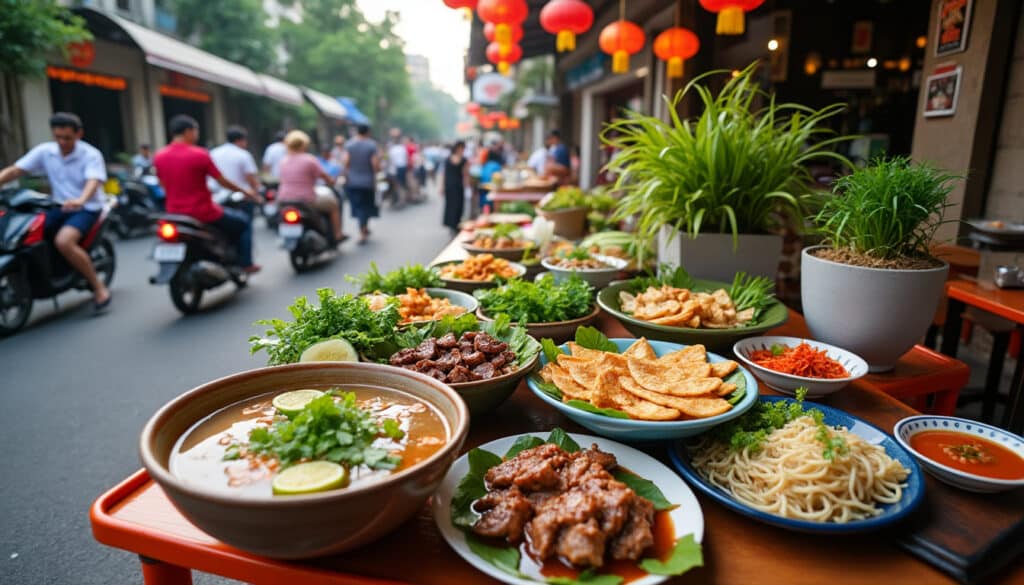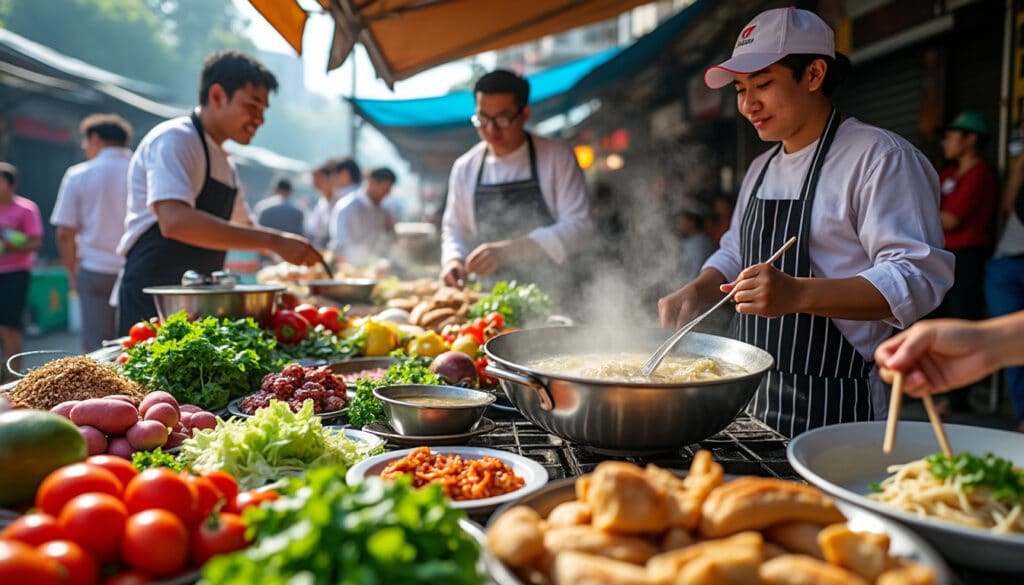Hanoi, the vibrant capital of Vietnam, is more than just a bustling metropolis filled with motorbikes and delicious street food. It is a city where languages of various hues intermingle, reflecting its historical roots and modern evolution. Aside from its official language—Vietnamese—the streets of Hanoi echo with a medley of tongues, including English, French, Chinese, Korean, and even minority languages that keep the city’s cultural tapestry rich and diverse. This linguistic diversity not only defines the character of Hanoi but also plays a crucial role for visitors eager to immerse themselves in the city’s cultural nuances. Let’s dive into the languages spoken in Hanoi and how they contribute to its colorful cultural landscape.
Explore Vietnamese: The Official Language of Hanoi
The primary language that one encounters in Hanoi is, undoubtedly, Vietnamese. Serving as the national language, Vietnamese is not just a medium of communication; it is a thread that weaves together the cultural and historical essence of the nation. Vietnamese is a *tonal* language, which means the meaning of a word can change based on its tone—a unique feature for those unfamiliar with tonal languages. Six distinct tones characterize spoken Vietnamese, each altering the meaning of words in fascinating ways.
Vietnamese is rich in vocabulary, drawing from various influences, especially Chinese and French, due to historical interactions. The language utilizes the *Latin script* with diacritical marks to indicate tones and pronunciation intricacies, making it quite learnable for those accustomed to Latin alphabets. The grammar is straightforward, lacking complex gender agreements, plural forms, or verb conjugations, which can be comforting for language learners.
- 🌍 Global recognition: Vietnamese is one of the top 20 most spoken languages worldwide.
- 🎓 Learning hubs: Institutions like the Vietnamese Language Center offer courses for non-native speakers.
- 📚 Literary richness: From proverbs to poetry, Vietnamese literature offers deep insights into the nation’s soul.
As the city grows, the usage of Vietnamese adapts, incorporating modern slang and expressions influenced by global trends, yet its foundational aspects remain intact. For visitors, mastering a few basic Vietnamese phrases can enhance interactions and showcase respect towards the local culture.
Vietnamese, with all its complexities and beauty, stands as not only the preferred tongue but also a gateway to understanding the authenticity of Hanoi’s way of life and traditions embedded in its society.
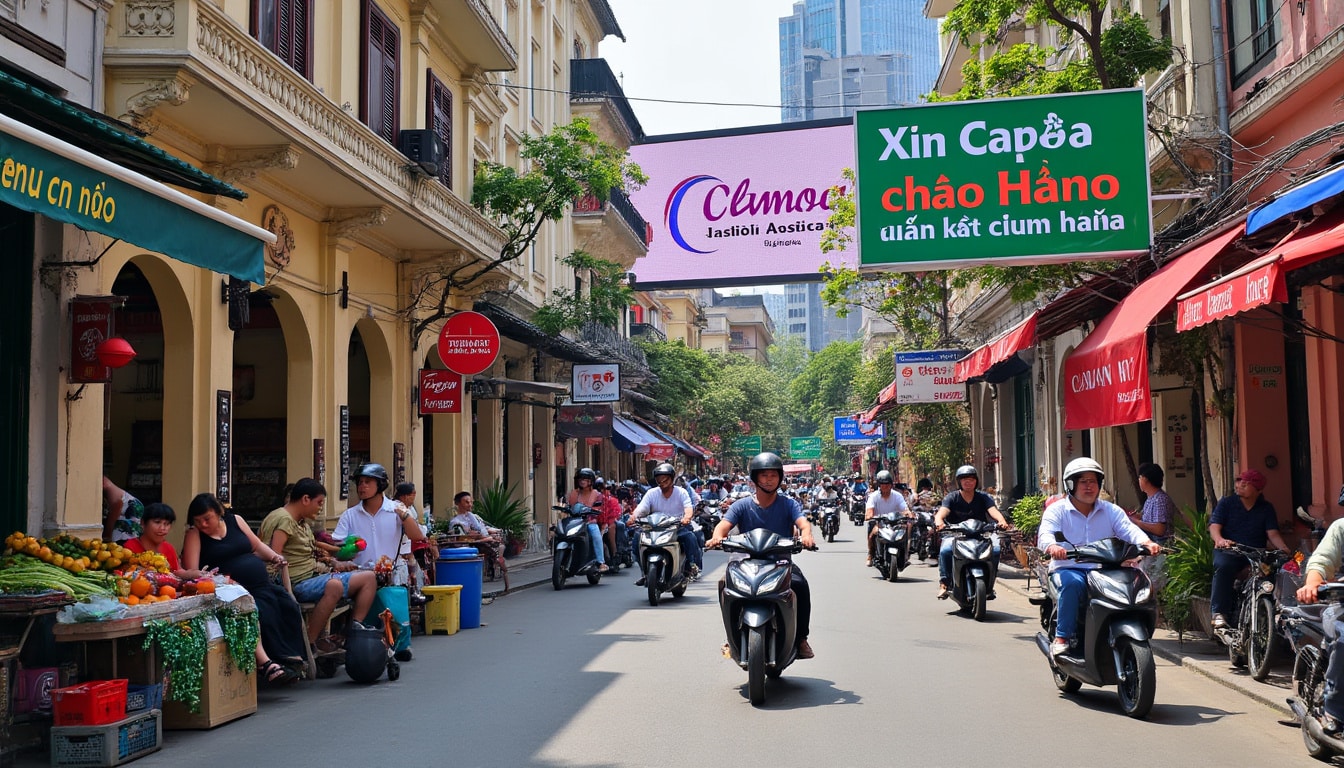
English’s Role in Hanoi’s Global Ambience
English has carved a significant niche for itself in Hanoi, primarily due to the burgeoning tourism industry and increasing global interactions. Over the years, the Hanoi English Language Institute and international language centers like International House Hanoi and Wall Street English Hanoi have proliferated, ensuring that English is accessible to a vast majority of the population.
Younger Hanoians, motivated by better employment prospects and access to global media, are increasingly attaining proficiency in English. The presence of English is particularly felt in tourist areas, educational sectors, and among younger generations who deftly switch between Vietnamese and English, often assisting confused travelers or engaging in cross-cultural dialogs.
| Institute | Location | Focus |
|---|---|---|
| British Council Vietnam | Central Hanoi | Comprehensive English courses |
| Goethe-Institut Hanoi | Ba Dinh District | German language and culture |
| Language Link Vietnam | Multiple locations | English and IELTS preparation |
The prevalence of English is evident in service industries where phrases and menus are often bilingual. This convenience not only assists non-Vietnamese speakers but also propels Hanoi onto the global map as a hospitable destination for travelers and expatriates alike.
In professional and educational settings, a good grasp of English is viewed as valuable, if not essential, for aspiring students and professionals who seek opportunities beyond national borders. Such linguistic dexterity reflects Hanoi’s openness and readiness to engage with the wider world, offering paths for both cultural exchange and economic advancement.
The Lingering Echo of French in Hanoi
French has played a notably pivotal role in shaping the architectural and linguistic landscape of Hanoi, a legacy stemming from Vietnam’s colonial era under French rule. While no longer widely spoken among younger generations, French echoes persist, especially within older demographics who were educated during the colonial period and in families with longstanding traditions in bilingual education.
In Hanoi today, areas like the French Quarter stand as testaments to this era, where neoclassical architecture merges elegantly with Vietnamese aesthetics. Educational institutions like the Alliance Française Hanoi celebrate Francophone culture, offering courses and cultural events to keep the language alive and thriving in the city.
- 🗼 Cultural exchanges: Regular events and films at Alliance Française promote the French tongue.
- 🏛️ Historical landmarks: Stroll through the elegant boulevards lined with French colonial architecture.
- 📄 Bilingual signage: Many street names and landmarks still bear French titles.
If one listens closely, the lilting cadence of French can still be heard in specific neighborhoods or institutions. French not only bridges a connection with Vietnam’s past but also enriches its contemporary cultural dialogue. Many locals embrace this duality, celebrating it through art, literature, and gastronomy, adding delightful layers to Hanoi’s cultural tapestry.
Chinese, Korean, and Japanese: Modern Interactions in Hanoi
Influences from China, Korea, and Japan are vividly reflected in the linguistic diversity of Hanoi. Chinese is deeply embedded within the Vietnamese lexicon, owing to centuries of historical interactions and migrations. Many Vietnamese words have Chinese roots and are still actively used in everyday conversation.
In recent decades, economic exchanges with China have revitalized the use of Chinese dialects in businesses and amongst communities with Chinese ancestry. Schools often include Chinese in their curriculum, recognizing its growing business prominence.
- 📊 Business language: Key for trading and commerce in bustling districts.
- 📚 Cultural courses: Offered at institutions like Newton Grammar School.
Meanwhile, the rising popularity of Korean and Japanese media, including K-Pop, dramas, and anime, has spurred young Hanoians to embrace these languages. Language schools and cultural institutes cater to this increasing demand, with many offering courses in Lingo Kids Hanoi to young learners eager to explore East Asian cultures.
Korea’s influence is especially noticeable in areas with high concentrations of Korean businesses and restaurants, providing a vibrant cross-cultural exchange that’s palpable in the urban landscape. Japanese is also gaining traction, largely due to cultural curiosity and the opportunities afforded by Japan’s strong economic ties with Vietnam.
The linguistic connections with these countries enhance Hanoi’s cultural richness, offering exciting possibilities for communication, trade, and cultural comprehension on both local and international levels.
Preserving Minority Languages in Hanoi
Lastly, Hanoi is home to numerous *ethnic minority languages* such as Hmong, Thai, and Khmer, each representing a rich cultural heritage and perspective. While these languages are not as widespread, they hold significant cultural and historical value. Many ethnic communities in Hanoi work diligently to preserve their languages and traditions, often through community programs and cultural events.
The Vietnamese Language Center and cultural organizations foster awareness about these languages, promoting inclusivity and the preservation of cultural identity amidst rapid modernization. Participating in festivals and cultural events offers a window into the diverse narrative threads that weave together Hanoi’s social fabric.
| Language | Community Presence | Initiatives |
|---|---|---|
| Hmong | Northern outskirts | Cultural heritage programs |
| Thai | Mixed urban areas | Traditional festivals |
| Khmer | Central Vietnam | Linguistic preservation workshops |
The presence of these minority languages in Hanoi not only enriches its eclectic soundscape but also serves as a reminder of the rich tapestry that forms Vietnam’s national identity. Preserving these languages amidst the bustling city life is integral in maintaining the diversity that Hanoi is renowned for, crucially supporting cultural diversity and unity.
FAQ: Understanding Hanoi’s Linguistic Diversity
- What is the official language of Hanoi?
Vietnamese is the official language spoken by the majority of residents. - How commonly is English spoken in Hanoi?
English is commonly used in tourist areas and among the younger generation, with several language schools offering comprehensive courses. - Are there institutions supporting French language learning in Hanoi?
Yes, centers like Alliance Française offer French language courses and cultural events. - What efforts are being made to preserve minority languages in Hanoi?
Cultural events and community programs focus on preserving and promoting languages like Hmong, Thai, and Khmer.
Hanoi’s richly layered linguistic landscape invites exploration and discovery, offering a unique glimpse into the city’s soul. Whether for travelers eager to connect or residents striving to explore their cultural roots, embracing Hanoi’s languages is a journey worth embarking upon.

Hanoi, the vibrant capital of Vietnam, is a city where ancient traditions harmoniously coexist with modernity. This bustling metropolis is a rich tapestry of culture, history, and everyday local life that captivates every visitor. From the bustling streets of the…
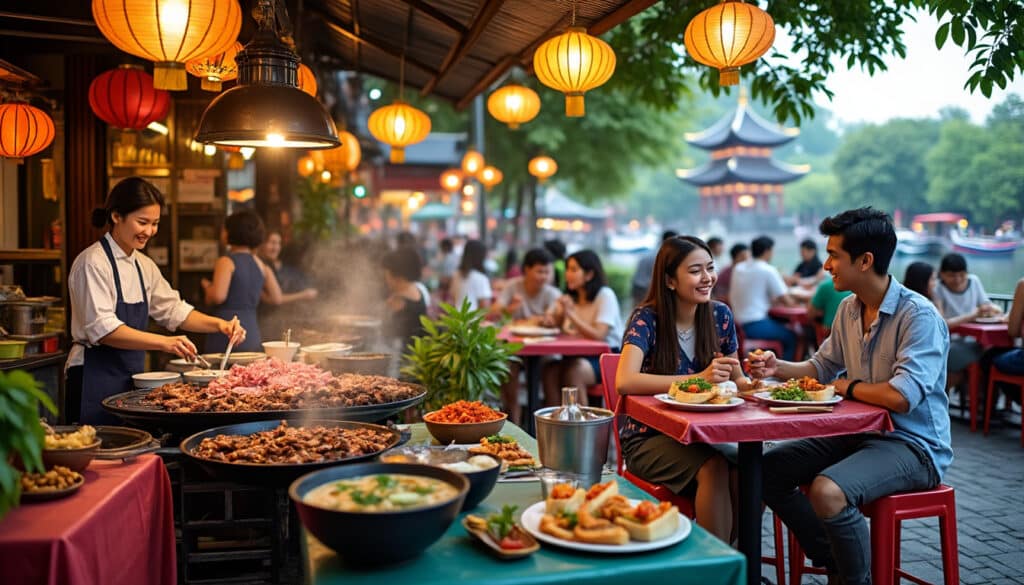
Hanoi, the captivating capital of Vietnam, is a culinary paradise that seamlessly blends history, culture, and irresistible flavors. With its dynamic food scene that gracefully marries tradition with modernity, it offers a medley of dishes that promise to tantalize your…
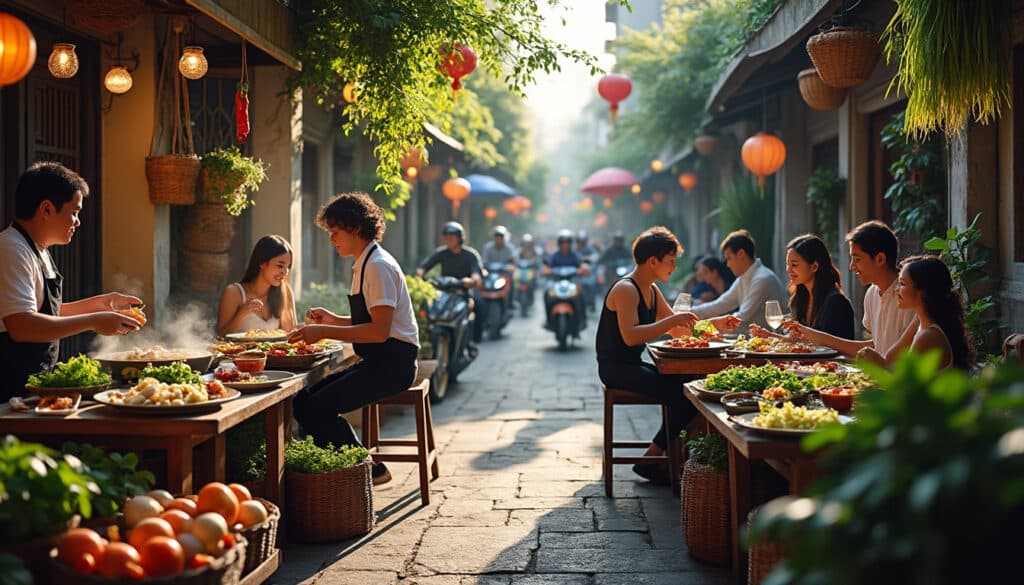
Hanoi, the vibrant capital of Vietnam, is not only known for its rich history and bustling streets but also for its remarkable culinary scene filled with a plethora of flavors and aromas. With each meal offering a unique taste of…

Souvenirs and shopping in Hanoi
Hanoi, the vibrant capital of Vietnam, is more than just a historical and cultural hub. It’s a paradise for shoppers searching for unique keepsakes and authentic Vietnamese gifts. As visitors stroll down the welcoming streets, they encounter a remarkable fusion…

